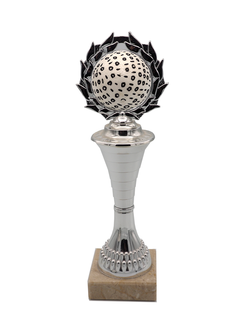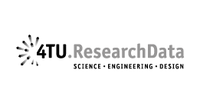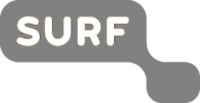I needed somebody who actually has the time to look up what tools are available and who can translate general policies and general infrastructure into daily practical solutions that fit our local needs. There’s a huge gap between policy and implementation for people doing the daily work. We need discipline specific support and we need hands-on help | Bas Teusink, VU University Library, 2018
In recent years, the term data steward has irrevocably entered the realm of data support. Data stewards face the challenge of translating the available infrastructure, tools and data policy into meaningful, tailor-made, discipline-specific advice. In this section we will show how different institutions are increasing the involvement of researchers and shaping data stewardship.

Facilitating FAIR data
In recent years, the policies of research funders and institutions have been very important in setting the agenda and creating awareness of the importance of FAIR data. However, much remains to be done to involve and facilitate the majority of researchers.
Surveys looking at the willingness of researchers to share research data show time and time again that the majority of researchers understand the importance of making their data discoverable. But daily practice does not yet keep pace with the intended ideal (Stuart, 2018; Houtkoop, 2018; Van den Eynden, 2016; CWTS, 2017). Data stewards will prove to be essential links in a process of cultural change where FAIR data is slowly but surely becoming an everyday reality (European Commission, 2018).
The main obstacles to better research data management and sharing are cultural. But change is in our hands | Teperek, 2018
Increasing research engagement
The following strategies are used (inter)nationally to involve researchers and inspire enthusiasm for quality data management and a FAIR delivery of their research data. The strategies increase in degree of interactivity:
Putting researchers in the spotlight
Open data awards such as the Dutch data prize (RDNL, n.d.) and the Open Data Champions initiative by SPARC Europe (n.d.) are two examples of showing and rewarding good practices.
Recognition of researchers for their contributions to open science
On another level, the recognition of open science practices as a recruitment criterion (Schönbrodt, 2019) and the assessment of researchers on their contributions to open science (E.g. Utrecht University, 2018; NPOS, 2017, République française, 2018) is the subject of international debate. The outcome of this discussion will prove essential in the transition to a culture in which FAIR data is the standard.
Organising training sessions and meetings
Examples are:
- The Data Conversations meetings at Lancaster University (Lancaster University Library, n.d.).
- The R-cafes at Utrecht University (Utrecht University, n.d.a.).
- The Open Science & Education Programme (OSE) at Wageningen University & Research (Wageningen University & Research, n.d.a.).
Creating a Community of Practice
- The University of Cambridge established a community of data champions (Savage, 2019). These data champions consist of researchers, PhD students and supporters who want to commit themselves to good data management and to promote the sharing of data. They meet regularly in a Community of Practice on a shared theme.
- Dutch universities followed the concept of the data champions from the UK, for example:
- Wageningen University & Research blogs about their data champions (Wageningen University and Research, n.d.b.) and creates a community of data stewards by organising meetings (Wageningen University and Research, 2019). In the definition of Wageningen University & Research, data stewards are researchers, PhD students or supporters with partial tasks in the field of data management.
- You can read more about the data champions at Delft University of Technology later in this section.
Embedded data stewards
As an example of the elaboration of the embedded data stewards concept you can have a look at :.
- The Data Stewardship-programme at Delft University of Technology (2017)
- The embedded data manager service at Utrecht University (n.d.b.).
For a detailed description of these initiatives see the 'In the spotlight' section later in this section.
It is a good thing to involve and motivate researchers. But it's also good to realise that - luckily - great initiatives come from researchers themselves too. In 2018 and 2019, for example, open science grassroots communities are popping up everywhere (Nosek, 2019). This is also the case in the Netherlands. After Utrecht University started with an open science community (OSCU, n.d.) the other universities soon followed (Eerland & Brinkman, 2019). Joining such initiatives as a data supporter is essential.
"...my biggest strength was my disciplinary knowledge and deep understanding of how research is actually done" - @shalini_kr on her experience working as the #datasteward@tudelftTBMhttps://t.co/035jJ9g03E
— Marta Teperek (@martateperek) May 1, 2019

In the spotlight
Interview: A pool of data managers at Utrecht University
How do institutions shape data support? Throughout this course you will find interviews with inspiring examples. For this section, RDNL interviewed RDM Support at the University of Utrecht about their service from embedded data managers (Utrecht University, n.d.b.). Click to read the interview.
Case study: Data stewards and data champions at Delft University of Technology
Since 2017, Delft University of Technology has been conducting a pilot with the Data Stewardship programme, intended as disciplinary support for TU Delft researchers in their data management. The focus on disciplinary support is motivated by the conviction that there are no one-size-fits-all solutions when it comes to RDM. Delft University of Technology has eight faculties with a wide range of research themes. A data steward has been appointed at each faculty to provide researchers with targeted disciplinary support. Each data steward has a PhD in a relevant research area. Data stewards are the first point of contact for all questions about RDM. The data stewards answer about 80% of the questions themselves. They pass on the rest of the questions to relevant experts (for example questions relating to legal aspects, ethics, etc.).
The data stewards come together weekly to exchange ideas and experiences and they also share information digitally. In order to increase the visibility of the programme and to share open progress, a data stewardship website (Delft University of Technology, n.d.a.) and 'Open working blog' (Delft University of Technology, n.d.b.) have been launched.
Also read:
- A day in the life of a data steward (den Heijer, 2019).
- Becoming a data steward (Kurapati, 2019)
Research support at universities of applied sciences. A report by SURF (2019)
In the report ''Onderzoeksondersteuning op hogescholen uitgelicht' (In Dutch, SURF, 2019) you can read how Hogeschool Utrecht, Zuyd Hogeschool, Hogeschool Saxion, Christelijke Hogeschool Ede and Hogeschool van Arnhem and Nijmegen support researchers during the different phases of their research. Most universities of applied sciences strive to set up a one-stop shop, where researchers can go during all research phases. Questions that cannot be answered on the spot by this "one-stop-shop" are immediately passed on to the appropriate department. There is also a lot of attention for open science at the university colleges. Supporters try to create awareness about FAIR data principles (Findable, Accessible, Interoperable, Reusable). They do this by, among other things, alerting researchers to the importance of data management (RDM) and assisting them.
Collected case studies for involving researchers in RDM and FAIR data
How do you involve researchers in research data management? In 2019, the RDA project "Researchers engagement With Data Management - What Works?" (RDA, 2019) collected case studies and good practices from organisations around the world in a 'cookbook' (Teperek, et al. 2019).
Online course: Developing RDM services
In collaboration with the Digital Curation Centre and University of Edinburgh, RDNL has developed a Massive Open Online Course (MOOC) with the name: Delivering Research Data Management Services (University of Edinburgh, DCC, RDNL, 2019).
Cases and opportunities for privacy support
In the section 'Privacy support in practice' we show as an inspiring example how the Vrije Universiteit Amsterdam shapes privacy support with their concept of privacy champions. In addition, you will find two examples of opportunities for privacy support in the same section.

Sources
Click to open/close
CWTS, Elsevier, Leiden University (2017). Open data. The researcher perspective. https://www.elsevier.com/__data/assets/pdf_file/0004/281920/Open-data-report.pdf
DCC, RDNL, Univerisity of Edinburgh (2019). Delivering Research Data Management Services [Online course]. https://www.futurelearn.com/courses/delivering-research-data-management-services
Delft University of Technology (n.d.a.) Data Stewardship. https://www.tudelft.nl/en/library/current-topics/research-data-management/r/data-stewardship/
Delft University of Technology (n.d.b.). Open working. An Experiment in Open Working from 4TU.Centre for Research Data & TU Delft Research Data Services. [blog]. https://openworking.wordpress.com/
Delft University of Technology (2017, August). Data Stewardship – addressing disciplinary data management needs. https://openworking.wordpress.com/2017/08/29/data-stewardship-addressing-disciplinary-data-management-needs/
Eerland, A., Brinkman, L. (2019). Open Science Communities the Netherlands (OSCNL). https://osf.io/vz2sy/
European Commission (2018). Turning FAIR into reality. Final report and action plan from the European Commission expert group on FAIR data. EU publications. https://doi.org/10.2777/1524
Heijer, K. den (2019, July 11). A day in the life of a data steward. Library Insights blog. Taylor and Francis [blog]. https://librarianresources.taylorandfrancis.com/a-day-in-the-life-of-a-data-steward/
Higman, R., Teperek, M., Kingsley, D. (2018). Creating a Community of Data Champions. International Journal of Digital Curation. Vol. 12, Iss. 2, 96-106. https://doi.org/10.2218/ijdc.v12i2.562
Houtkoop, B. L., Chambers, C., Macleod, M., Bishop, D. V. M., Nichols, T. E., & Wagenmakers, E.-J. (2018). Data Sharing in Psychology: A Survey on Barriers and Preconditions. Advances in Methods and Practices in Psychological Science, 1(1), 70–85. https://doi.org/10.1177/2515245917751886
Kurapati, S. (2019, April 30). Becoming a data steward. LSE Impact blog. [Blog] https://blogs.lse.ac.uk/impactofsocialsciences/2019/04/30/becoming-a-data-steward/
Lancaster University LIirary (n.d.) Lancaster Data Conversations. https://www.lancaster.ac.uk/library/rdm/data-conversations/
Nationaal Plan Open Science. DANS, De Jonge Akademie, DTL, GO FAIR, KB, KNAW, LCRDM, Netherlands eScience Center, NFU, NWO, PNN, SURF, 4TU.Centre for Research Data, UKB, VH, VSNU, ZonMw. (2017). https://www.openscience.nl/het-nationaal-platform-open-science/nationaal-plan-open-science
Nosek, B (2019). Open Science Grassroots Community Networks [Google Sheet].
https://docs.google.com/spreadsheets/d/1LNF5_bOkRV-RLIF4HYmu-gOemIa4IdfXEer89fM-Vy8/edit#gid=0
OSCU (n.d.). Open Science Community Utrecht https://openscience-utrecht.com/
République française. Ministère de lʼEnseignement supérieur, de la Recherche et de lʼInnovation. (2018). National Plan for Open Science. https://libereurope.eu/wp-content/uploads/2018/07/SO_A4_2018_05-EN_print.pdf
RDA (2019). Researcher Engagement with Data Management: What works. https://www.rd-alliance.org/blogs/researcher-engagement-data-management
RDNL (n.d.). The Dutch Dataprize. https://researchdata.nl/en/services/data-prize/
Savage, J. L., & Cadwallader, L. (2019). Establishing, Developing, and Sustaining a Community of Data Champions. Data Science Journal, 18(1), 23. https://doi.org/10.5334/dsj-2019-023
SPARC Europe (n.d.).European Open Data Champions. https://openscholarchampions.eu/opendata/
Stuart, D., Grace, B., Iain, H., Katie, A., Dan, P., Mithu, L.; et al. (2018): Whitepaper: Practical challenges for researchers in data sharing. figshare. https://doi.org/10.6084/m9.figshare.5975011.v1
Stuurgroep NPOS (2018). Notitie – Erkennen en waarderen van onderzoekers. https://www.openscience.nl/files/openscience/2019-02/notitie-erkennen-en-waarderen-van-onderzoekers.pdf
SURF (2019). Onderzoeksondersteuning op hogescholen uitgelicht. Vijf voorbeelden uit de praktijk. https://www.surf.nl/files/2019-06/20190701-surf-rapport-onderzoeksondersteuning-op-hogescholen-uitgelicht-web.pdf
Teperek, M. et al. (2019). Engaging researchers with research data: The cookbookhttps://docs.google.com/document/d/1XnXJeOocmaz-xU0oTmMLpBXrcFTdHmBDQG8bHMq7_GY/edit#heading=h.ezhiysrwie4h
University of Edinburgh, DCC, RDNL (2019). Delivering Research Data Management Services. https://www.futurelearn.com/courses/delivering-research-data-management-services
Utrecht University (n.d.a.) R-cafes. https://www.uu.nl/en/research/research-data-management/training-workshops/r-cafe
Utrecht University (n.d.b.). Experience data managers. https://www.uu.nl/en/research/research-data-management/tools-services/experienced-data-managers
Utrecht University (2018). Open Science Programme. https://open-science.sites.uu.nl/wp-content/uploads/sites/321/2019/02/Utrecht-University-Open-Science-Programme-ver.-1.0.pdf
Schönbrodt, F., Mellor, D., Bergmann, C., Penfold, N. (2019). Academic job offers that mentioned open science. https://osf.io/7jbnt/
Teperek, M. (2018) On a (cultural) journey towards FAIR data. Presentation given by Marta Teperek on 20 September 2018 at the ePlan workshop: EOSC in Progress. https://doi.org/10.5281/zenodo.1422232
Van den Eynden, V., Knight, G., Vlad, A., Radler, B., Tenopir, C., Leon, D. et al. (2016): Survey of Wellcome researchers and their attitudes to open research. figshare. Paper. https://doi.org/10.6084/m9.figshare.4055448.v1
VU University Library (2018, 26 November). ‘Take research data management seriously and organize discipline specific support’. [News]. https://ub.vu.nl/en/news-agenda/news-archive/2018/okt-dec/take-research-data-management-seriously-and-organize-discipline-specific-support.aspx
Wageningen University and Research (n.d.a.) Start WUR Open Science & Education Programme [news] https://www.wur.nl/en/newsarticle/Start-WUR-Open-Science-and-Education-Programme.htm
Wageningen University and Research (n.d.b.) Open Science Blog. Data champions https://weblog.wur.eu/openscience/?s=data+champions
Wageningen University and Research (2019.) Data stewardship for FAIR data management: how WUR organizes data governance. http://edepot.wur.nl/476871





